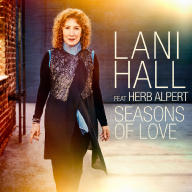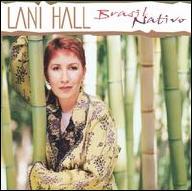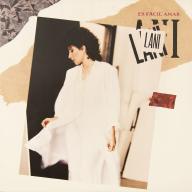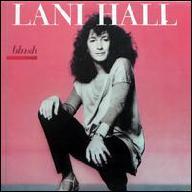Born in 1945 in Chicago, Illinois, Hall grew up in a working-class family of Russian and Polish heritage. Her home life was troubled and she found an outlet in singing, gaining early inspiration from performers like Anita O’Day, June Christy, and Ruth Olay. Around age 19, she started attending open-mike nights at the storied Chicago club Mother Blues. This led to a regular gig singing at The Centaur, a local coffeehouse. It was during one of her performances at The Centaur that she was approached by Brazilian bandleader Sérgio Mendes to join a new version of his group to be called Brasil '66. Although she didn't speak Portuguese, she eventually agreed and moved to Los Angeles where the group (then also featuring vocalist Bibi Vogel) signed with AM Records. They began working with producer and label co-founder Herb Alpert and in 1966 made their debut with Herb Alpert Presents Sérgio Mendes Brasil '66. The album, which put Hall's multi-tracked vocals in the spotlight, cracked the Top Ten of the Billboard 200, buoyed by their hit rendition of Jorge Ben's "Mas Que Nada," as well as a bossa nova-inspired take on the Beatles' "The Fool on the Hill."
Hall and Brasil '66 built upon their success, releasing a series of equally genre-bending albums mixing Brazilian traditions with pop and rock flavors, including 1967's Equinox, 1968's Look Around, and 1969's Fool on a Hill; all Top Ten hits. The group also gained widespread attention with their live appearances at Madison Square Garden and elsewhere alongside Herb Alpert's Tijuana Brass. However, internal conflict between the bandmembers and Mendes brought significant line-up changes and by the late '60s, Hall was considering a change. In 1971, she made her final appearance on the group's moody, folk-rock-influenced Stillness, sharing vocal duties with Brazilian singer (and Mendes' future wife) Gracinha Leporace.
Following her departure from Brasil '66, Hall took time off to rethink her career and spend time with Alpert. The couple (who married in 1974) embarked on a collaborative musical career with Hall's 1972 solo debut, the Alpert-produced Sun Down Lady. A spare and romantically low-key album, it found Hall applying her warm style to songs like Lesley Duncan's "Love Song," Elton John's "Tiny Dancer," as well as her own original song "You. The equally soft-focus Hello It's Me followed in 1975 and again showcased a blend of singer/songwriter pop, jazz, and folk elements, as did 1976's Sweet Bird and 1979's Double or Nothing.
In 1980, Hall released her fifth album, Blush, which found her embracing a more adult contemporary pop style. She also recorded the Mendes- and Alpert-produced title track for the 1983 James Bond film Never Say Never Again. Yet it was her Spanish-influenced albums, starting with 1982's Juan Carlos Calderón-produced Lani Hall, that earned her wider acclaim. That album garnered her a Grammy-nomination and was followed by 1985's Albert Hammond-produced Es Fácil Amar. Buoyed by duets with José Feliciano and Roberto Carlos, the album won the Grammy Award for Best Latin Pop Performance.
At the height of her success in the mid-'80s, Hall contracted a chronic Epstein–Barr virus and consequently took some time off from performing. She returned to work in 1998, releasing the Brazilian-inspired Brasil Nativo on the Windham Hill label. In 2007, she and Alpert began touring regularly and recording together, releasing 2009's Anything Goes and 2011's I Feel You. The albums found the duo touching upon various aspects of their careers, including jazz standards, Brazilian and Latin music, pop songs, and reworkings of classic hits.
In 2013, she and Alpert released their third album together, Steppin' Out, which also featured keyboardist Jeff Lorber; the album won a Grammy for Best Pop Instrumental Album in January of 2014. The singer has also appeared on many of her husband's productions, including his Grammy-winning 2016 album Human Nature, 2019's Over the Rainbow, and 2021's Catch the Wind. In 2022, Hall again paired with Alpert for her first solo effort in over 20 years, the warm covers album Seasons of Love. ~ Matt Collar, Rovi
















